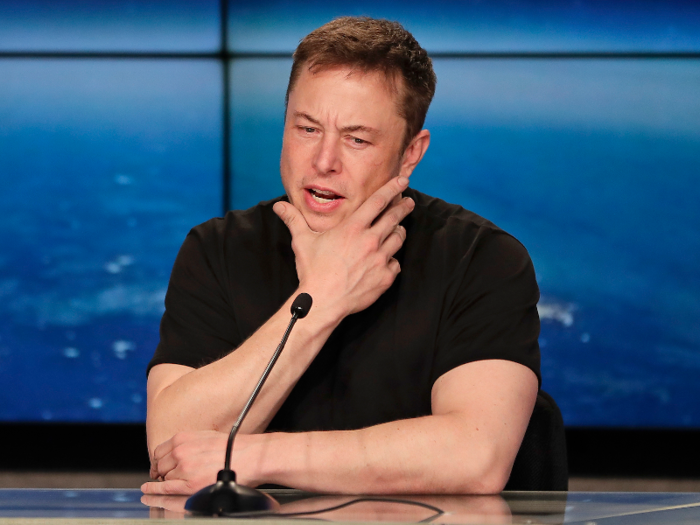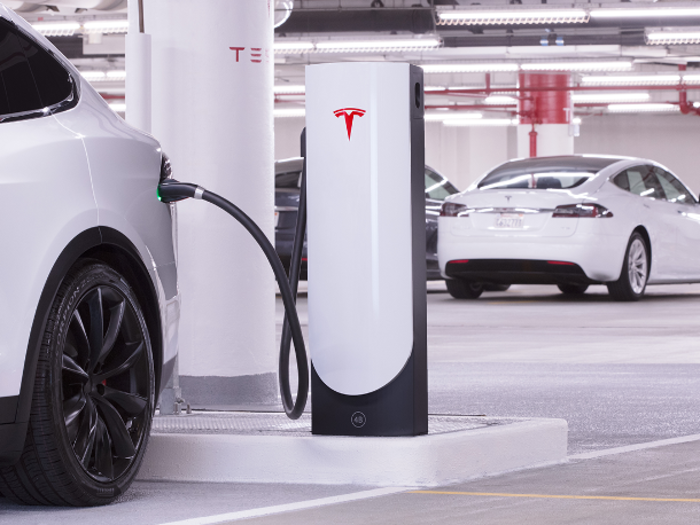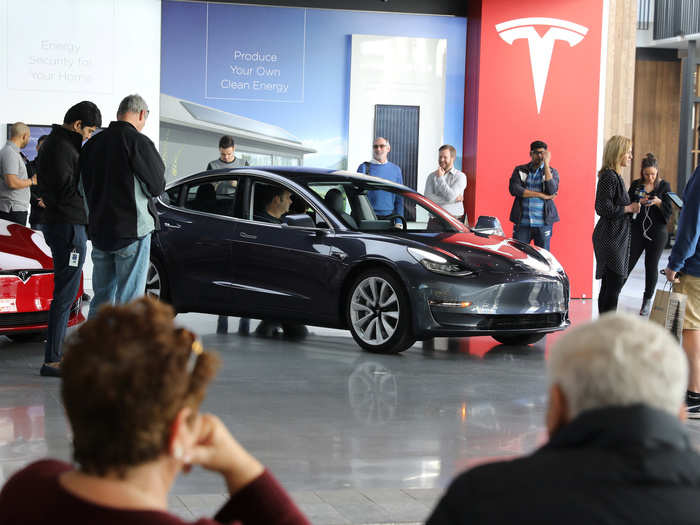- Home
- slideshows
- miscellaneous
- 5 reasons why Tesla is probably poised for a rebound
5 reasons why Tesla is probably poised for a rebound
1. Tesla has often rebounded in the second half of the year.

2. Musk has been chillin'.

Compared with 2018's orgy of Twitter-enabled madness, Musk has more or less stuck to his knitting in 2019.
Some of this has been ironically the result of short-sellers getting the better of him. They've been winning, so they have less incentive to provoke, and that has given Musk less to react against.
Musk has also been busy with his other company, SpaceX, which recently launched a small constellation of internet satellites. Rocket science is hard — and time-consuming.
Additionally, Musk has been pushing Tesla in a heads-down, get-it-done direction, akin to how he ran the company in the second half of 2018, when it surged to a profit.
3. Tesla is consolidating its dominance of the electric-car market.

The electric-car market is tiny — only about 1% of global sales — but in the US, it's growing, and much of the growth is being captured by Tesla.
Edmunds.com estimated that Tesla's May sales were up 71% from the same month last year, by far the largest increase among companies selling vehicles in the US. In fact, Tesla is one of the key reasons why the US auto market continues to run at near-record sales levels after four years.
There's a bit of a misunderstanding about other automakers' desire to compete with Tesla. In a note to investors last week, Morgan Stanley analyst Adam Jonas pointed out that, in May, Tesla likely sold three times as many cars as other companies with EVs on the market. Essentially, Tesla has an EV monopoly.
The "competition" doesn't really care. They aren't making very many EVs, firstly because they aren't seeing a particularly big market for them yet, and secondly because they haven't figured out how to make money on the per-unit basis. Much of their EV efforts right now are really preemptive of what they assume will be more stringent government emissions regulations in the future.
Of course, people don't not want to buy EVs, and for them, Tesla is increasingly going to be their first stop. In practical terms, that means Tesla should enjoy increasing revenue over the short term.
4. Tesla negatives are wearing thin.

The Model 3, Tesla's theoretically mass-market sedan, endured the worst birth of any vehicle I've ever seen in the car business.
Tesla tried to push a massive number of vehicles through a poorly designed production system, broke that system, and then had to improvise. At one point, some of the most expensive Model 3 variants were being built on an assembly line under a tent in Tesla's parking lot. Henry Ford wouldn't have recognized the setup.
The resulting vehicles had some issues. That's nothing new for Tesla; every vehicle it's developed has suffered from early-production snafus. They've usually taken about a year to sort out.
Ditto the Model 3. The more cars on the road that don't have problems, the less likely Tesla is to be fighting daily customer-relations battles. The Model 3, like the Model S and the Model X before it, is a pretty good car. Not perfect, but plenty satisfying for most owners.
This isn't to say that Tesla doesn't have some challenges ahead. But the first rule of business in the auto industry is that your customers, most of them, have to love what they drive.
5. The ultra-bulls are being discounted.

Tesla's daffier boosters — ARK Invest, with its wild $4,000 price target recently bumped up to $6,000, for example — are engaged in a sort of marketing-as-performance art. The daffiness gets them headlines and TV spots, which in turn pumps their businesses, or at least brands them.
Financial markets, meanwhile, continue to grapple with what a reasonable valuation for Tesla could be, assuming some robust future growth but nothing Earth-shaking, despite Musk's predictions about millions self-driving robotaxis.
For the remainder of 2019, that puts Tesla in a $200-$400 trading range. That's good news for the company's business because it anticipates a staunching of the red ink. It's bad news for the ultra-bulls because it implies that Tesla would have to abandon a solid business to embrace a colossally expensive and uncertain new one.
Popular Right Now
Popular Keywords
Advertisement